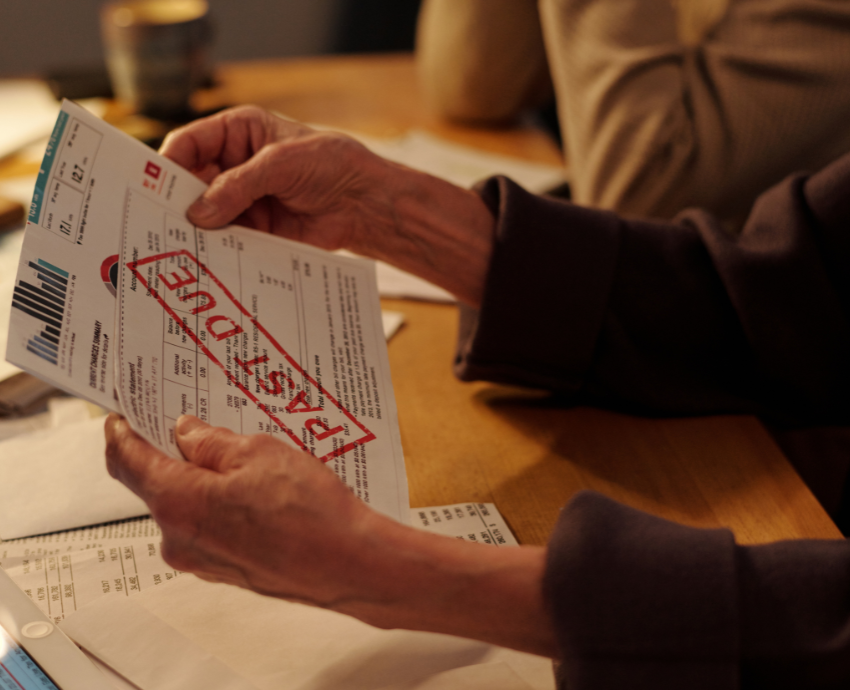
The People vs Robodebt
Directed by Ben Lawrence
Produced by CJZ
Available on SBS On Demand
The unleashing of Robodebt — an automated debt calculation and recovery system targeting Centrelink recipients — by Scott Morrison’s Coalition government in 2015 is one of the biggest scandals in Australian political history.
It ran for nearly four years, with about 443,000 Australians receiving 900,000 debt notices, most of them wrong. At least three people suicided, others were left destitute.
The three-part SBS documentary The People vs Robodebt focuses on the everyday people who took on the system to seek justice. It features legal experts, key witnesses and victims. It lays out in excruciating detail the deliberate cruelty and flawed basis of the scheme, which hounded vulnerable people for debts they never owed.
Robodebt demonstrated “the power of a government” says Dr Darren O’Donovan, senior lecturer at La Trobe Law School, “to reach into someone’s life and create harm”.
Episode one (53m) features former Department of Human Services (DOHS) staff who explain that Robodebt was reliant on incorrect income averaging and “useless” Australian Tax Office data, erroneously multiplying debts that didn’t exist.
Centrelink compliance officer Colleen Taylor describes how staff begged management, including then-DOHS secretary Kathryn Campbell, to stop the dangerous and likely illegal scheme, designed to “recover” $4 billion in “budget savings”.
“It was actually Centrelink that became Australia’s largest criminal organisation”, Taylor says, as staff who raised concerns were told to shut up or ship out, their own livelihood threatened if they intervened.
Guardian journalist Christopher Kraus recalls being inundated with victims once the scandal broke.
Then-Minister for Human Services Alan Tudge’s former media advisor Rachelle Miller is interviewed, saying “there wasn’t really any other answer (than) ‘yes, Minister’”, as viciously self-interested politicians ignored early reports and rammed the scheme through.
The documentary tells the story of several Robodebt victims, including florist Rhys Couzza. His mother, Jenny Miller, recounts how Rhys received an unexplained debt notice for more than $17,000 — with no information given about where it came from.
As the media storm broke, Miller admits she only conceded something was wrong once a young “well-educated” parliamentary colleague received a debt. She says the “Canberra bubble of privilege and power” is devoid of human empathy for disadvantage.
In episode two (52m), Kraus talks about the extreme rhetoric from politicians and media targeting Centrelink recipients as “dole bludgers”. As an investigative journalist, he reiterates how small a proportion deliberate fraud really is.
It maps out Lindsey Jackson’s #NotMyDebt social media hashtag — which went viral — and social media activist Asher Wolf’s creation of the Not My Debt website.
When Centrelink compliance officer Jeannie-Marie Blake turns whistleblower to the Guardian, the full scale of the scheme’s horror is laid bare.
But it was too late for Rhys. His mother recounts with heartbreaking clarity finding the pile of debt collection letters after he took his own life, only finding out about the Robodebt scandal at his wake, then taking his story to the Saturday Paper. The article, ‘Centrelink Pushed Him Over The Edge’, appeared on February 18, 2017.
In response, Tudge doxxes Rhys to other journalists in a lowlife attempt to discredit the story, calling it “correcting misinformation”. The cold, condescending letter his office sent Rhys’s mum after his death has to be seen to be believed.
By January 2019, more than 400,000 debt notices had been issued and complaints soared. Morrison’s ministers doubled down as Legal Aid was inundated and started scoping a Federal Court challenge to the scheme.
The final episode (58m) is almost a courtroom drama and covers the struggle for accountability and justice led by ordinary Australians, highlighting the irreversible damage the scheme did to people’s lives.
“We weren’t trained to deal with (that) level of trauma”, says Blake, herself later diagnosed with complex post-traumatic stress disorder.
After 32 years of public service, fellow whistleblower Taylor retired early in disgust, receiving a warning letter to keep quiet or risk “two years imprisonment and loss of pension”.
After a Federal Court challenge mounted by Victorian Legal Aid, and thanks to the bravery of test case victim Deanna Amato, the government was finally forced to grudgingly concede the illegality of income averaging. But it still denied doing harm.
We see the class action and the Robodebt Senate Committee, during which Campbell crystallises the utter contempt she and the entire Morrison government had for innocent victims.
It outlines how after seven and a half years and a change of government, the Robodebt Royal Commission finally allowed victims and whistleblowers to be heard.
While victims testify with tremendous courage, we see Tudge refuse to take responsibility. The scheme’s architect and former PM Morrison smirks his way through his “I don’t recall” testimony and former Minister for Government Services Stuart Robert claims he “had no choice”.
The Royal Commission’s final report was scathing, calling Robodebt “An extraordinary saga of venality, incompetence and cowardice”.
It recommended six “unnamed individuals” be referred for potential civil and criminal prosecutions — which has yet to happen.
Jenny Miller expresses her overwhelming relief at Rhys’s eventual public vindication, but fury at the ultimate lack of justice, noting that without those six prosecutions “there is nothing to stop it from happening again”.
The People vs Robodebt is a must-watch, clear, investigative review of the scandal and the terrible toll it took on ordinarily people. It showcases the bravery of victims, journalists, whistleblowers and lawyers as they fight for the truth at great personal cost.
It is a damning indictment of a government full of lawmakers prepared to inhumanely disregard the law for political gain, and a terrifying expose of how easily purpose-built “dole bludger” hate speech fed to a receptive electorate could let them get away with it.